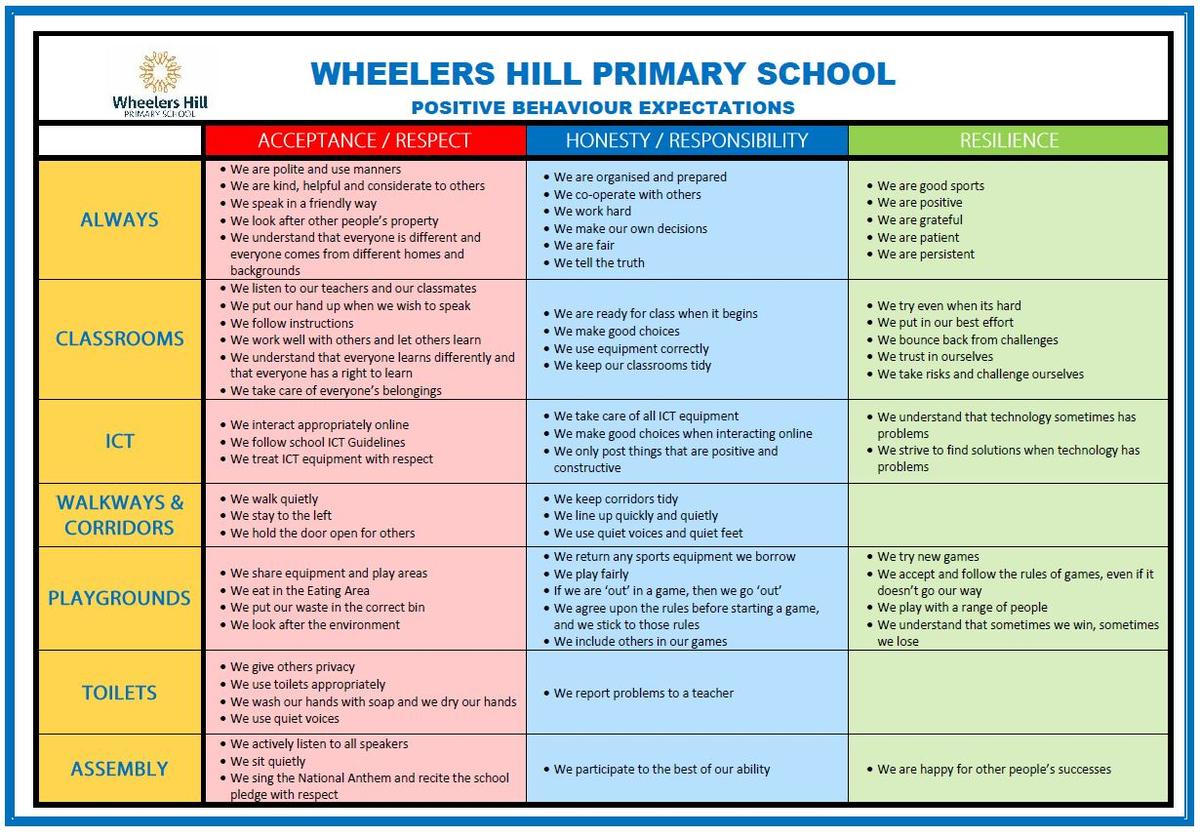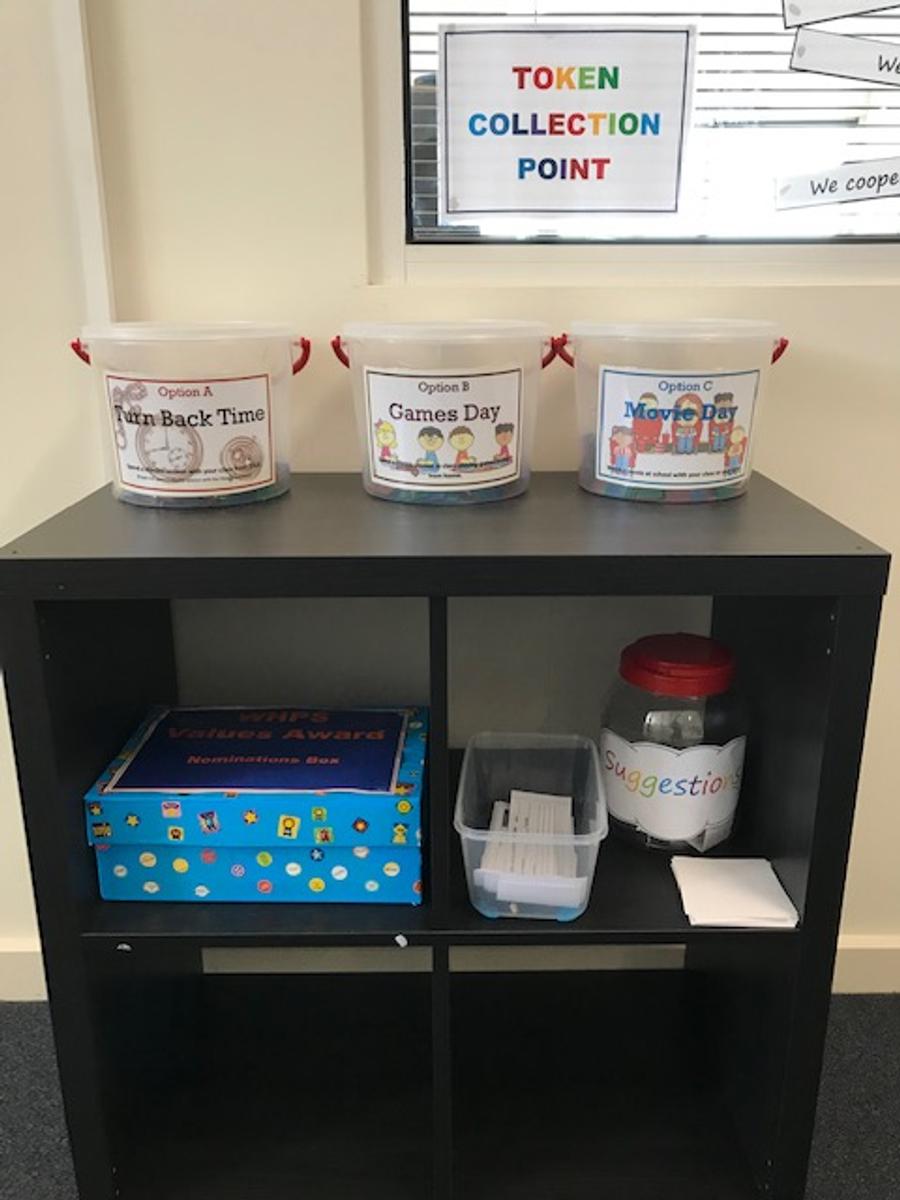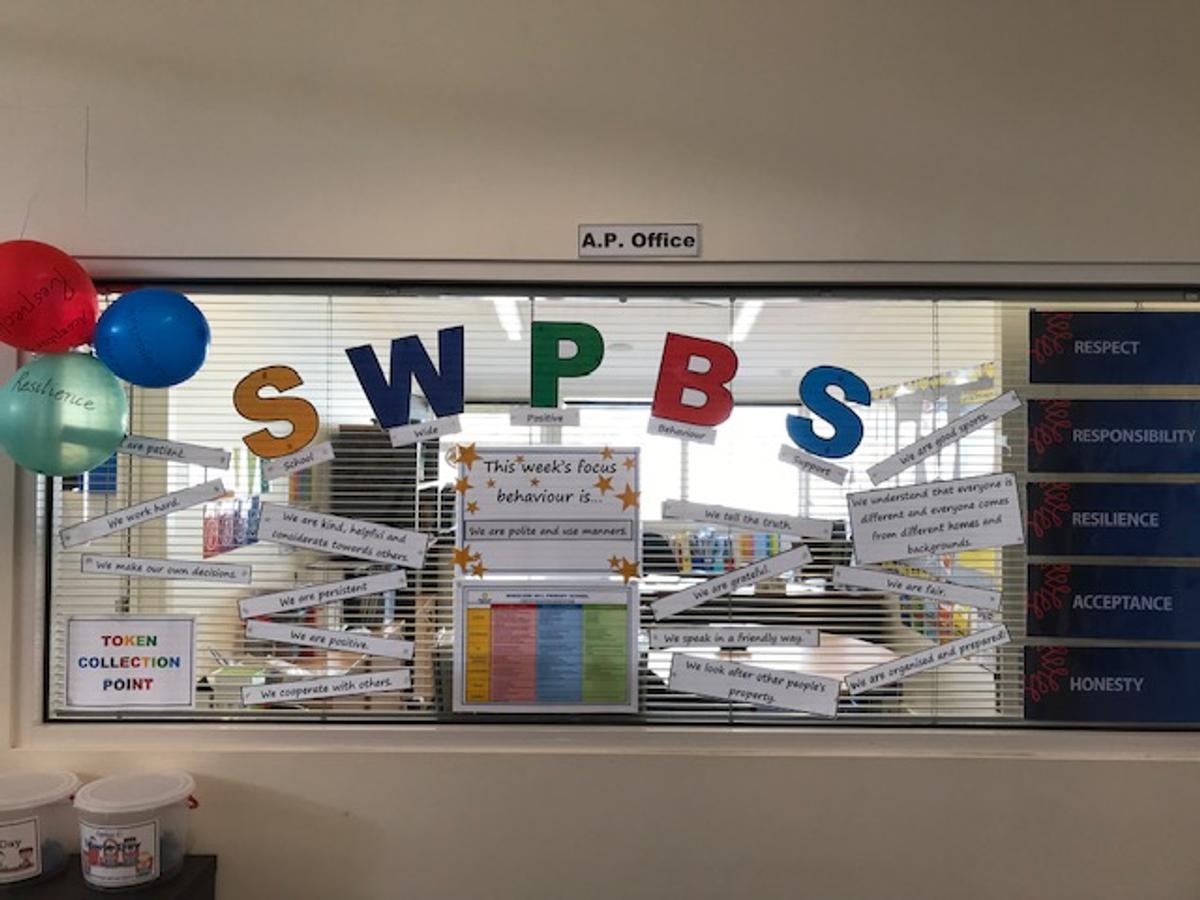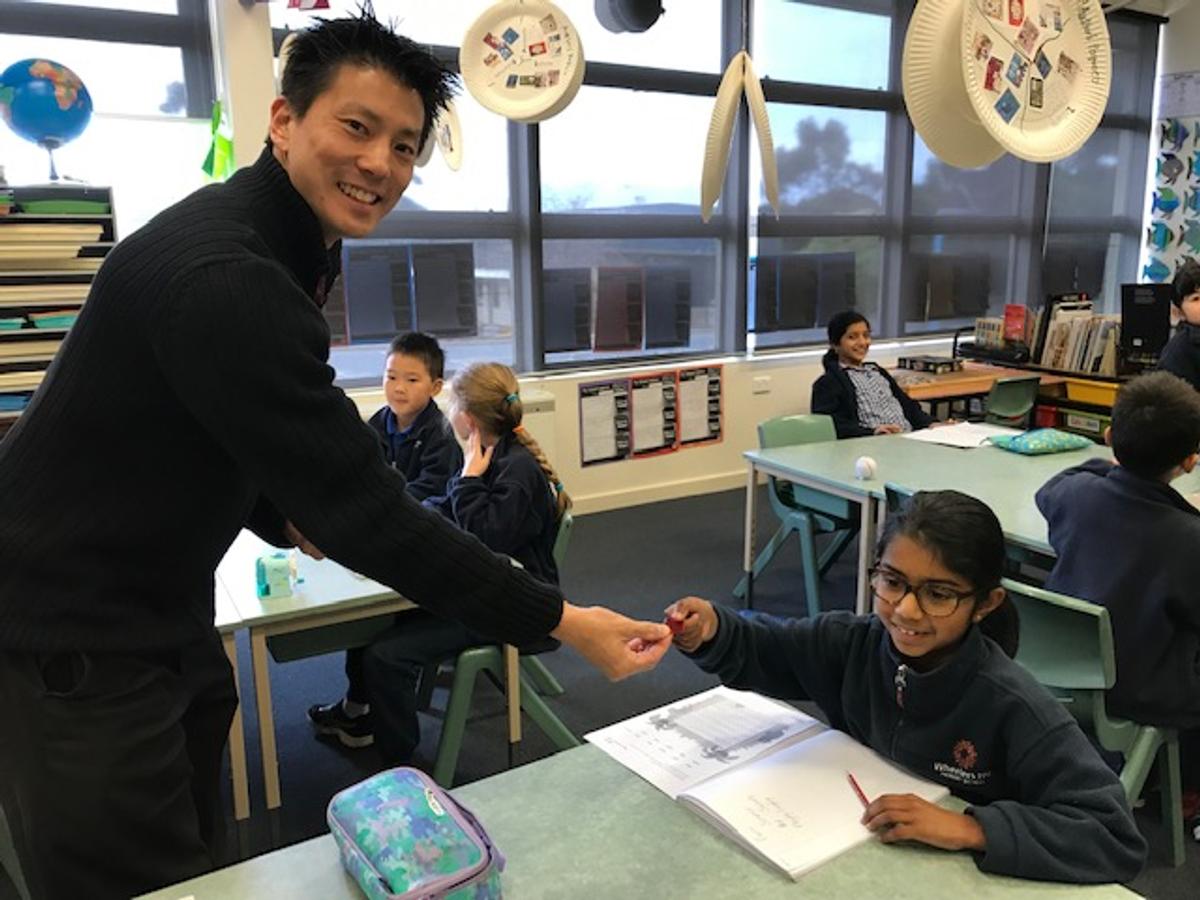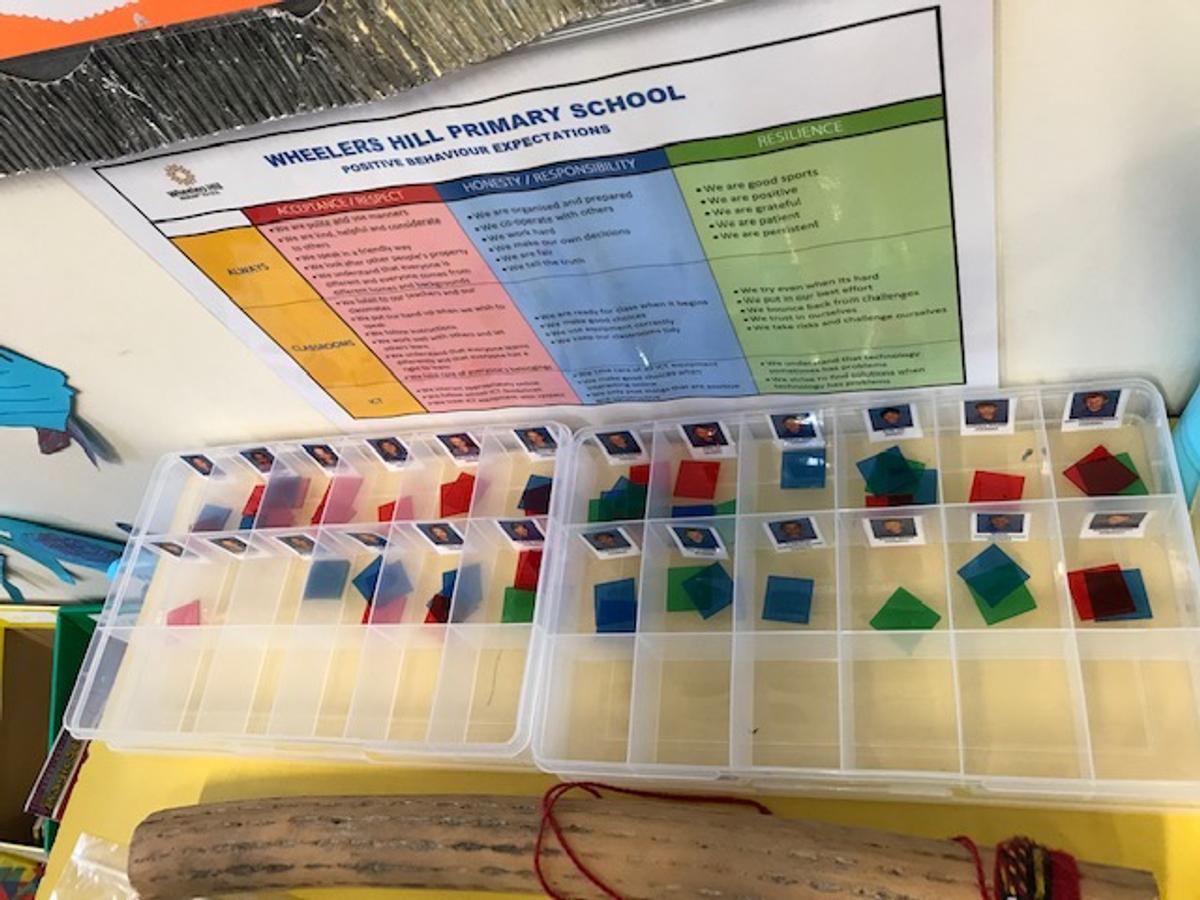Assistant Principal's Report Katrina Spicer - Welfare and Wellbeing
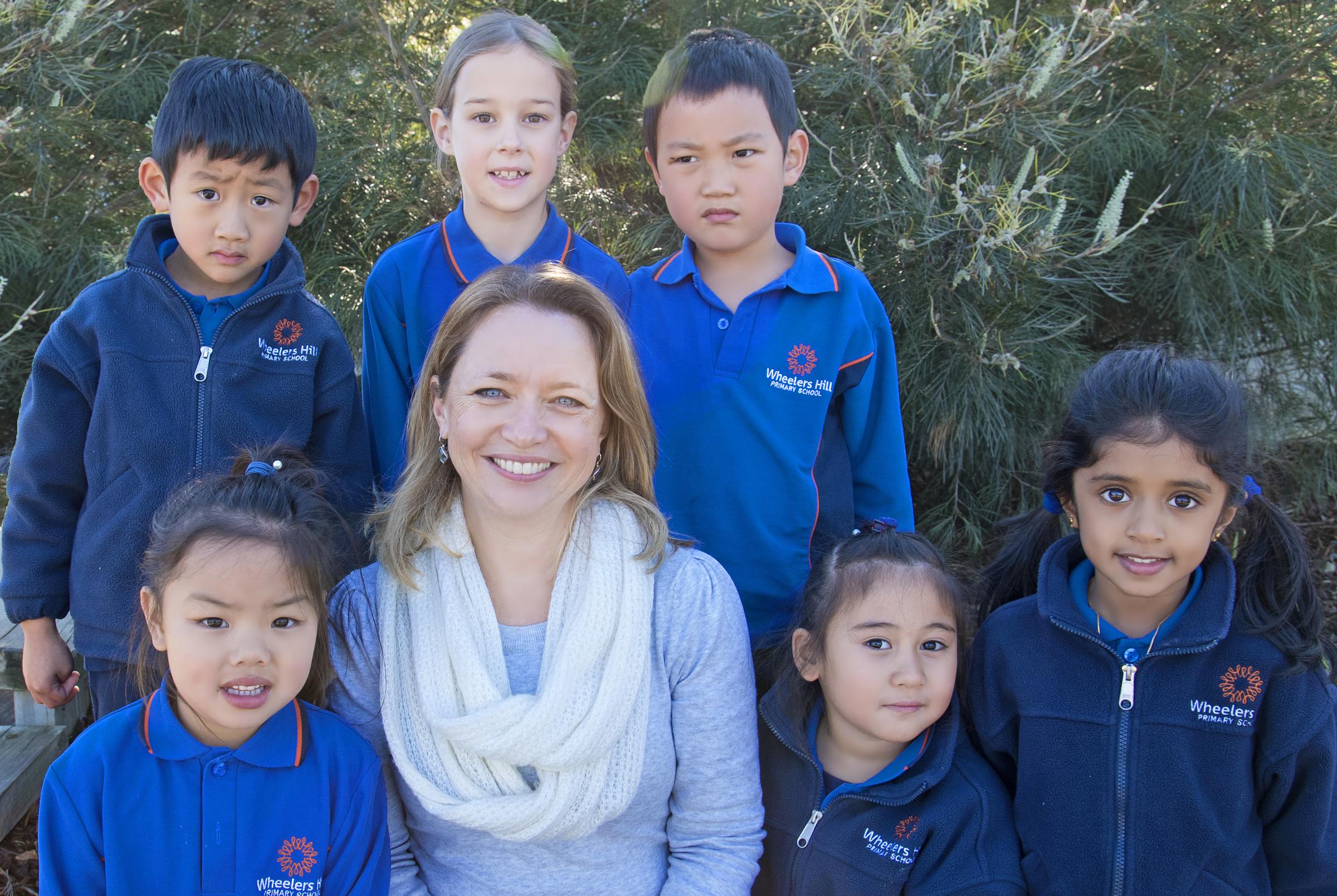
26th July, 2019
School-Wide Positive Behaviour Support (SWPBS)
Last week we began implementing our 'free and frequent' reward system. Students are handed a coloured token when they are seen demonstrating one of our positive behaviour expectations, as indicated on the matrix below.
Our focus behaviour for the first two weeks of term has been 'We are polite and use manners'. Our focus for weeks three and four will be 'We are kind, helpful and considerate to others'. Families may wish to support what we are doing at school by focusing on these behaviours at home, too.
When a behaviour has been acknowledged by staff member and a student has received a token, they place their token in their own compartment in a box in the classroom. On Fridays, students use their tokens to vote for a whole school reward which will be received in the last week of term.
Students have responded very positively to this new initiative. It is now very clear how students are expected to behave at school, and by acknowledging when students do the right thing, we are constantly reinforcing these expectations.
Parenting Ideas Article
Developing Leadership Skills in your Child
By Michael Grose
Your child has the potential to be a leader given the right circumstances and environment. The following five leadership skills have been observed in student leaders in Australia primary schools and can be promoted by parents at home.
Responsibility
Being a leader means that your child is willing to take responsibility and be accountable for their actions. Personal responsibility is shown when your child is accountable for their behaviour, for their belongings and for others. Practical ways to develop personal responsibility include:
- Giving them responsibility for part of their day
- Encouraging them to restore relationships with others when they mess up
- Taking responsibility for household chores
Communication
While most leadership positions require your child to speak publicly, their communication skills can be developed through regular one-on-one or small group experiences at home and at school. Practical ways to develop your child’s communication skills include:
- One-on-one conversations with adults
- Regular discussions at the meal table
- Encourage your child to participate fully in speaking activities at school
Organisation
Personal organisation skills and the ability to organise others are important for effective leadership. Practical ways to develop organisational skills include encouraging your child to:
- Keep their personal space tidy and organised
- Use a diary to help manage their time
- Organise a weekly chores roster including all members of the family
Teamwork
Cooperating, encouraging and accepting others are essential qualities of an effective leader. Practical ways to develop a sense of teamwork include:
- Play team games where children work together
- Encourage siblings to cook and do other chores together
- Focusing on your child’s contribution to a team or group rather than individual achievement
Emotional Intelligence
An underestimated quality shared by most admired leaders is their ability to remain calm when things don’t go well. This emotional intelligence skill requires self-awareness, an ability to recognise their emotions and respond appropriately to the emotions of others. You can nurture these skills in the following way:
- Help your child recognise their emotions
- Help your child recognise emotions in others
- Teach your child to shift their mood
Leaders are needed in all walks of life – at work, in school, in families, in sport and in the wider community. The skills of leadership are sewn in the first group that they belong to – their family. By encouraging your child to be a contributing member of their family you are also helping to develop leadership skills they can practise outside their family.
Katrina Spicer
Assistant Principal - Welfare and Wellbeing

